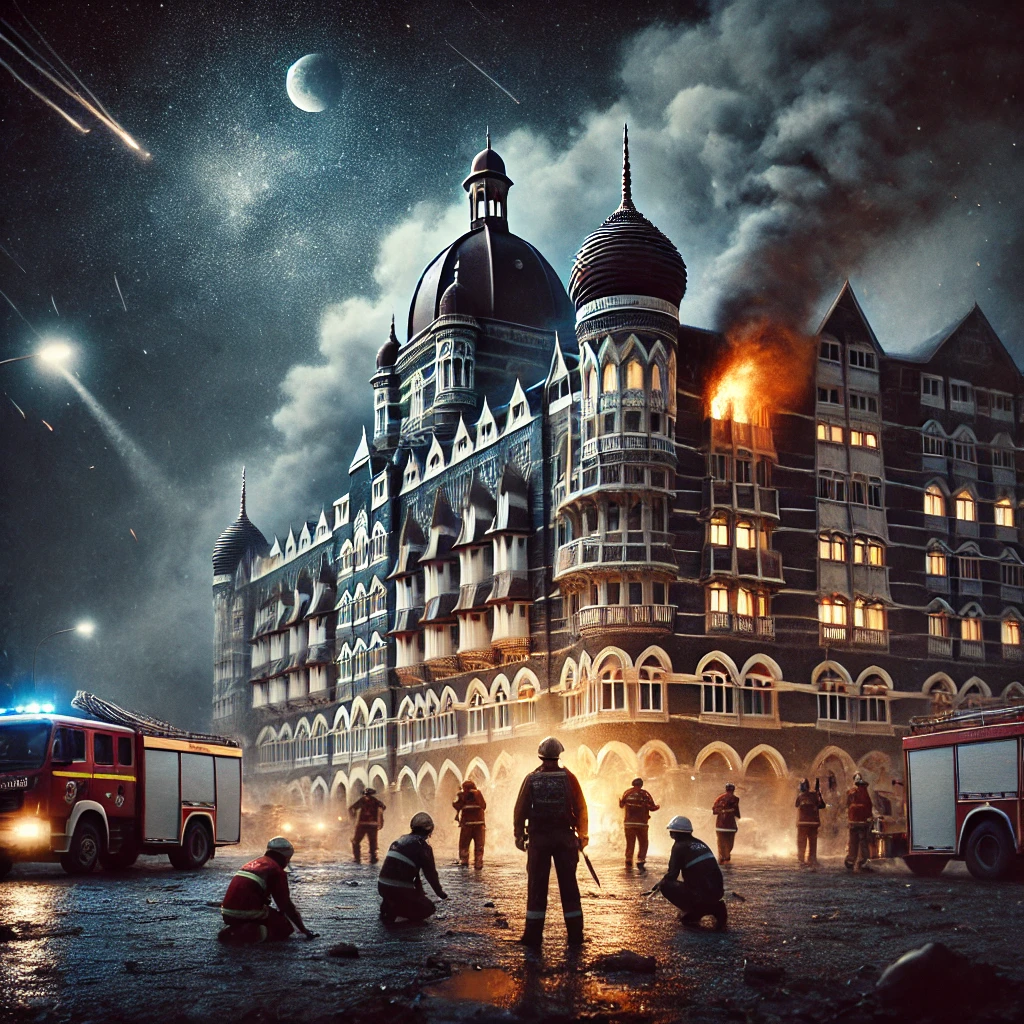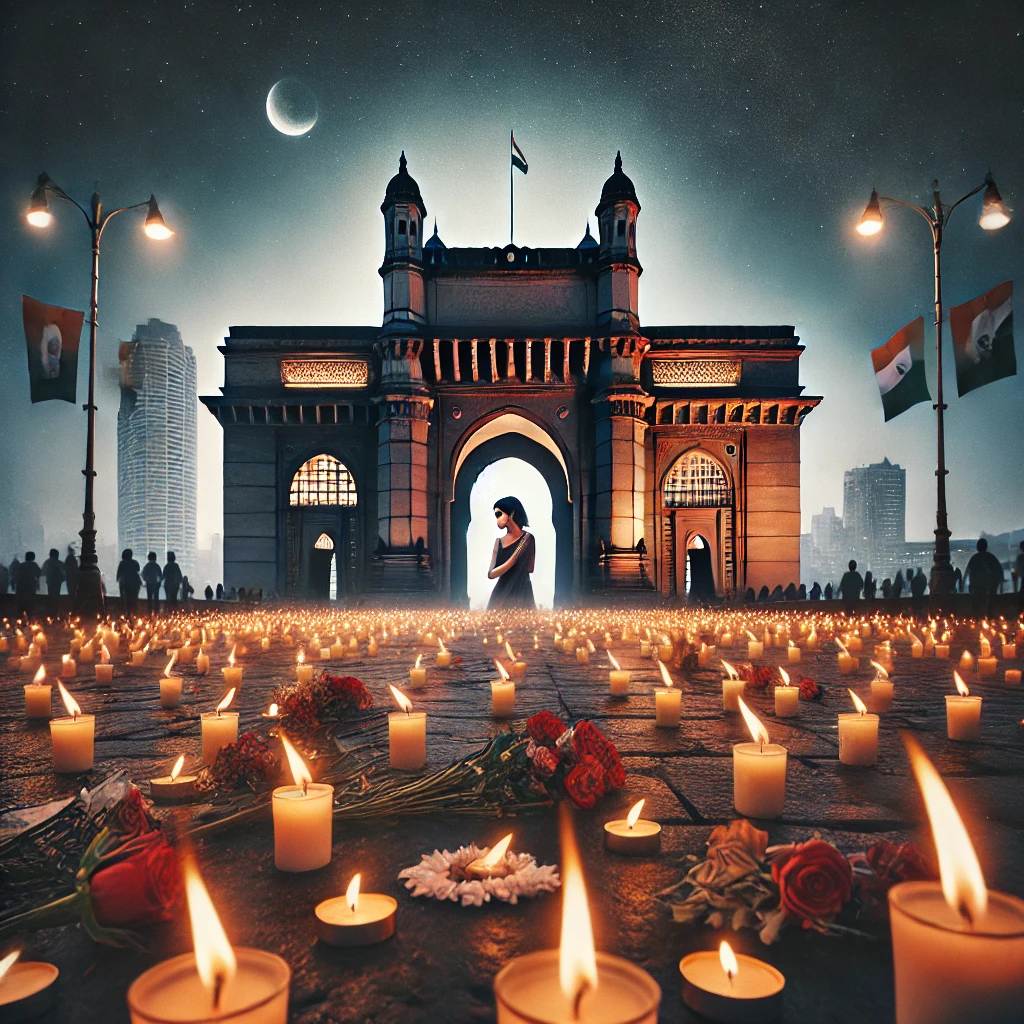On this solemn day in 2008, a series of coordinated terrorist attacks unfolded in Mumbai, India. Over the course of four harrowing days, ten heavily armed terrorists carried out strikes across the bustling metropolis, targeting iconic landmarks such as the Taj Mahal Palace Hotel, the Oberoi Trident Hotel, and the CST railway station. Additional attacks occurred at the Jewish Chabad House and other locations, creating widespread panic and devastation. These acts of terror resulted in the tragic loss of 166 lives and left over 300 injured, casting a shadow of grief over the city and the nation.
The terrorists, trained and equipped by the Pakistan-based militant group Lashkar-e-Taiba, meticulously planned the attacks to inflict maximum casualties and chaos. The assault began with gunfire and bomb explosions and included hostage situations that intensified the fear and uncertainty. The siege at the Taj Hotel, in particular, became emblematic of the violence, as fires raged and gun battles persisted for hours.

Historical Significance and Global Shock
The Mumbai attacks were not just a tragedy for India; they resonated globally as an alarming reminder of the growing threat of transnational terrorism. For India, the attacks exposed significant gaps in security preparedness and intelligence coordination, sparking widespread criticism of government agencies. For the world, they demonstrated the ability of small groups of extremists to paralyze entire cities and capture global attention.
Mumbai, a symbol of India’s economic and cultural vibrancy, became the scene of unprecedented destruction. Images of the burning Taj Hotel and the bravery of security forces dominated international media, galvanizing support and condemnation from across the globe. The attacks also underscored the vulnerabilities of urban centers and the need for international cooperation in combating terrorism.

Lasting Impact and Lessons Learned
Fifteen years later, the scars of the Mumbai terror attacks remain visible, but so do the lessons they imparted. India overhauled its counter-terrorism apparatus, establishing the National Investigation Agency (NIA) and modernizing its National Security Guard (NSG) units. Cities across the country adopted stricter security measures, including advanced surveillance systems and better coordination between state and central agencies.
Globally, the attacks intensified discussions about the importance of intelligence sharing and counter-terrorism partnerships. Nations recognized that terrorism transcends borders, requiring collaborative strategies to preempt and neutralize threats. The attacks also highlighted the human spirit’s resilience. Stories of survivors, heroic acts by civilians and security personnel, and the city’s return to normalcy showcased the indomitable will to overcome adversity.
Remembering the Past, Shaping the Future

The Mumbai terror attacks of November 26, 2008, serve as a grim reminder of the devastation wrought by terrorism but also as a testament to the resilience of humanity. The world continues to honor the lives lost and the bravery exhibited in those dark days. As cities grow larger and interconnected, the lessons of Mumbai emphasize the ongoing need for vigilance, unity, and proactive efforts to safeguard peace. This day in history remains a pivotal moment, shaping not just Mumbai but the global fight against terrorism.
